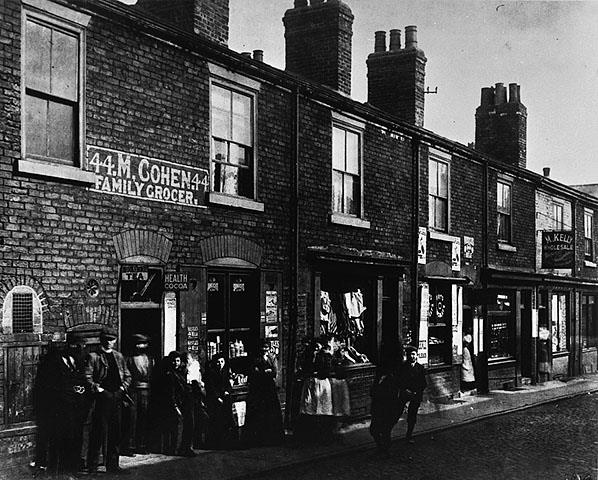
The Jewish Community of Leeds
Leeds
Cloth-manufacturing city in Yorkshire, N. England.
Jews first appear here in the late 18th century. However, a community was founded only c. 1823 and a cemetery acquired only in 1837. Until 1846 a small room served as synagogue, larger accommodation being acquired in that year. The first synagogue building for the parent congregation was erected in 1860, when there were a hundred Jewish families. With the growth in local prosperity the Jewish population increased, and in 1877 the present Beth Hamidrash Hagadol, now a congregation with 620 seat holders, was organized in a small room by recently arrived immigrants. Toward the close of the 19th century many Russian and polish immigrants settled in Leeds and were absorbed largely in the tailoring industry to which they gave a great impetus. Sir Montague burton was one of many Jews who contributed largely to its development.
Zionism flourished in Leeds, especially due to the presence of Professor Selig Brodetsky.
In 1970 the Jewish community totaled 18,000 out of a population of approximately 508,000. This was the third largest community, after London and Manchester, and contained the highest proportion of Jews to the general population in Great Britain. Three of the nine synagogues in Leeds are combined in the united Hebrew congregation with a total membership of nearly 2,000. There is also one Reform congregation. The Leeds Jewish Representative Council, organized in 1938, embraced almost every local synagogue, Zionist group, charitable organization, and friendly society. There was a Hebrew department at Leeds University and the teachers there have included Shimon Rawidowicz.
Hyman Morris was Lord Mayor in 1941--42 and J. S. Walsh in 1966--67.
By the mid 1990's the Jewish population had dropped to approximately 9,000.
In the 2001 British census, which recorded the religion of respondents, Leeds was found to have 8,270 declared Jews, making it still the third largest Anglo-Jewish community after Great London and Manchester.
Leeds continued to have a wide variety of Jewish institutions, among them six Orthodox, one Reform, and one Masorti synagogue.